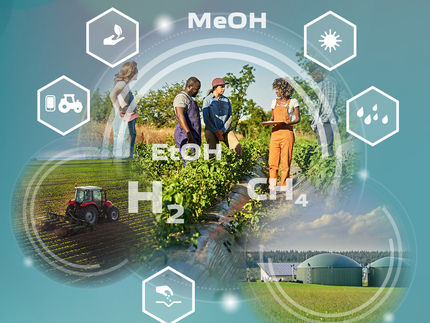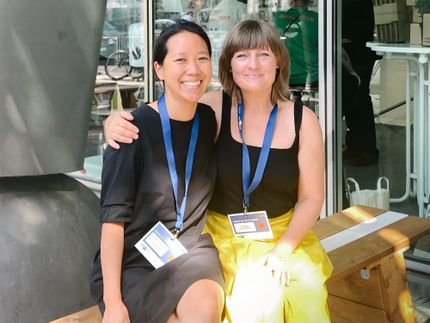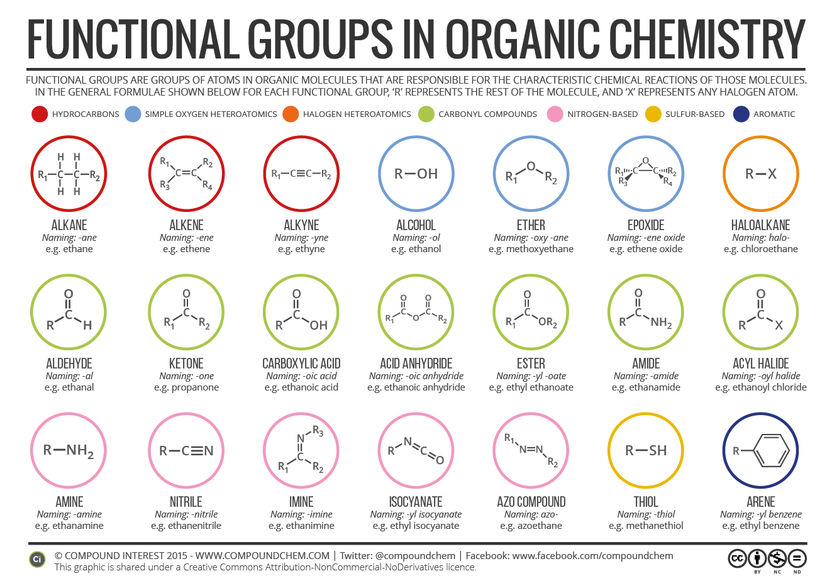Navigating the Future of Sustainable Chemistry and Textiles
Start-up Dimpora from Switzerland wins ISC3 Innovation Challenge
How can innovations in sustainable chemistry drive a more sustainable textile industry? Which factors play a role for investors and potential customers for successful sustainability-driven start-ups? And what are future promising trends in Sustainable Chemistry in the textile sector? These pivotal questions were at the forefront of the 6th ISC3 Investor Forum 2024, held during the Impact Festival on October 30th and 31st at Forum Messe Frankfurt. Answers were provided not only by international experts from various fields, but also by five start-ups who presented their ideas at the Innovation Challenge, which was once again one of the highlights of the Investor Forum. What they all have in common is that their innovations contribute to a more sustainable textile industry and are supported by the International Sustainable Chemistry Collaborative Centre (ISC3). But in the end, there could only be one winner: the Swiss start-up Dimpora with its groundbreaking PFAS-free textile membrane.
Dimpora won the main prize in the €25,000 Innovation Challenge for its CoreLayer technology, which is designed to replace harmful chemicals in conventional textile membranes. Co-founder Mario Stucki expressed his gratitude: “Winning the ISC3 Innovation Award 2024 here at the Impact Festival is much more than just an award for us. It is the culmination of an incredible journey. We were already overjoyed to be here as one of the finalists and to present our vision. We started with the goal of replacing harmful chemicals, such as PFAS, in conventional textile membranes, which led to the development of Dimpora's CoreLayer technology. Today, our patented PFAS-free membranes protect both people and the planet.”
In addition to the Innovation Award, the ISC3 also presented two Special Impact Awards, each worth €5,000: One to Renasens from Sweden for its innovative waterless textile recycling technology, and one to Polybion from Mexico, awarded for its Celium™ leather alternative made from agro-industrial waste. “We are proud and honoured to present these Sustainable Chemistry innovations within the textile sector – an industry requiring urgent changes in its current practices, and thus, in dire need of innovative solutions to mitigate the pressure on the environment and support sustainability”, stated Dr Alexis Bazzanella, Director of the ISC3 Innovation Hub.
Furthermore, five other start-ups supported by ISC3 presented themselves at the Impact Festival and had the chance to win an audience award for their pitch. The Audience Award went to Theseus Development from Ghana for its geopolymer-based cement alternative.
Catalyzing Change: Financing innovation in Sustainable Chemistry and Textiles
The innovation showcase wasn’t the only highlight at the Investor Forum 2024: “As the world grapples with sustainability challenges including the textile sector, our event gathered once again industry leaders, innovators and investors to discuss the ecosystem's challenges and opportunities”, pointed out Dr Thomas Wanner, Managing Director of ISC3. With a short impulse, he introduced ISC3 and Sustainable Chemistry, setting the stage for the panel discussion, where international experts provided insights into the challenges and opportunities of financing innovation in the field of Sustainable Chemistry and textiles. “You need to be environmentally positive, not just avoid harm”, highlighted Miguel Ramôa, Chief of Innovation and Sustainability at Adalberto Textile Solutions (Portugal), the necessity of aspiring for true sustainability. Thomasine Dolan Dow, Director of Material Innovation and Design at MII (USA), who also took part in the discussion moderated by Astrid Ewaz, Certified Expert in Sustainable Finance and Project Manager at ISC3 Innovation Hub (Germany), emphasised the importance of honest communication to avoid greenwashing. And while Sophia Escheu, Associate at Speedinvest (France/Germany), identified promising sectors in the textile industry that can drive significant change, such as automated fashion processes and AI-driven research and development, Thomas Rehmet from the Centre for Entrepreneurship at the University of Reutlingen and the Textile.Accelerator (Germany) pointed out the crucial role of circular business models in achieving true sustainability.
The final highlight at the end of the programme of the ISC3 Investor Forum 2024 was a masterclass titled “What Dimension of Sustainability Does Your Start-up Impact?”, where participants engaged in interactive exercises and case studies on Sustainable Chemistry and the different sustainability dimensions.
This year's Impact Festival attracted over 4,000 visitors from 40 countries, among them more than 250 investors, and showcased over 200 innovative solutions, including the 10 Sustainable Chemistry solutions presented at the ISC3 Investor Forum.
ISC3`s 7th Investor Forum edition is scheduled for autumn/winter 2025. For more information, please visit isc3.org.
The winners of the ISC3 Innovation Challenge 2024
Five finalists presented their solutions to a large audience at the Impact Festival, including many potential investors. An international expert jury had selected them among almost 50 international high-quality innovative solutions from the sustainable textile solutions sector to win the ISC3 Innovation Challenge Award that is endowed with a total of €25,000. The final decision was close: Dimpora AG from Switzerland made the race and won the main prize of €15,000. The start-up has developed a revolutionary PFAS-free textile membrane that makes fabrics completely waterproof and breathable without harming the environment, thanks to a scientifically based and patented CoreLayer technology.
In addition to the ISC3 Innovation Award, ISC3 also presented two Special Impact Awards, each worth €5,000: one went to the Swedish start-up Renasens. The female-led start-up contributes to accelerating the transition to a circular economy with their waterless & clean technology to recycle blended textile wastes to new resources without fibres’ depolymerisation or degradation.
The next Special Impact Award went to Polybion. The Mexican start-up uses locally produced agro-industrial fruit waste as raw material to craft forward-thinking biomaterials such as Celium™- Premium Cultivated Cellulose. Celium™ can be dyed, embossed and tanned using existing infrastructure, resulting in a lower negative environmental impact than traditional fabrics.
Looking ahead, ISC3 is now seeking start-ups worldwide for the 2025 Innovation Challenge, which will focus on the topic of "Sustainable Chemistry and Climate Change."
Alongside the winners of the ISC3 Innovation Challenge, these seven start-ups presented their groundbreaking ideas at the ISC3 Investor Forum 2024
AppCyclers (Ghana) operates a web-based marketplace platform that digitizes the collection, sourcing, and purchasing of e-waste by connecting generators, recyclers, and off-takers, streamlining the entire lifecycle.
AR-ENA (Jordan) produces a new type of hydrogel – polymers which absorb air humidity and capture liquids and can be used as a replacement for soil in hydroponics and as a replacement or assistant for the irrigation process and systems. AR-ENA’s innovation aims to revolutionize agriculture by reducing water usage by up to 65% while significantly boosting crop yields.
DNACotton (Türkiye) has developed a block-chain based traceability system in the textile sector by engaging DNABarkod® technology. This technology involves the genetic tagging of products at various stages of the production cycle, providing each product with a unique genetic identifier.
Egrobots (Egypt) revolutionizes agriculture with AI-powered robots and data analytics. The start-up provides farmers precision solutions for crop health, optimizing yields and promoting sustainable farming practices.
Nina Energy (Ecuador) is a science-based start-up that develops high-tech pyrolysis equipment on-site with locally sourced materials and workforce, reducing CAPEX and lead times while creating economic opportunities. Their tech adaptability ensures efficient resource utilization and the generation of carbon credits that are traded in the voluntary market.
SCHUTZEN CARE PRIVATE LIMITED (India) develops bio-based and biodegradable textile and leather chemicals that support biodiversity. These chemicals are based on the valorisation of bio-waste from the seeds of a local tree fruit and are produced using SCHUTZEN's patented reaction technology. SCHUTZEN’s innovation reduces carbon emissions, provides an alternative to hazardous substances, thereby reducing risks to human health, reducing water pollution and promoting biodiversity.
Theseus Development (Ghana) uses an abundant, natural material to produce an alternative to cement-based concrete called "geopolymers", which can be used as thermo- and cost-efficient building blocks for the building industry. The start-up aims to accelerate the transition to a green built environment by empowering builders to create sustainable communities with geopolymer concrete.
Other news from the department business & finance
Most read news
More news from our other portals
Something is happening in the chemical industry ...
This is what true pioneering spirit looks like: Plenty of innovative start-ups are bringing fresh ideas, lifeblood and entrepreneurial spirit to change tomorrow's world for the better. Immerse yourself in the world of these young companies and take the opportunity to get in touch with the founders.




























































